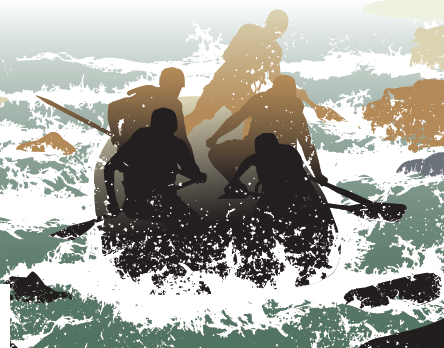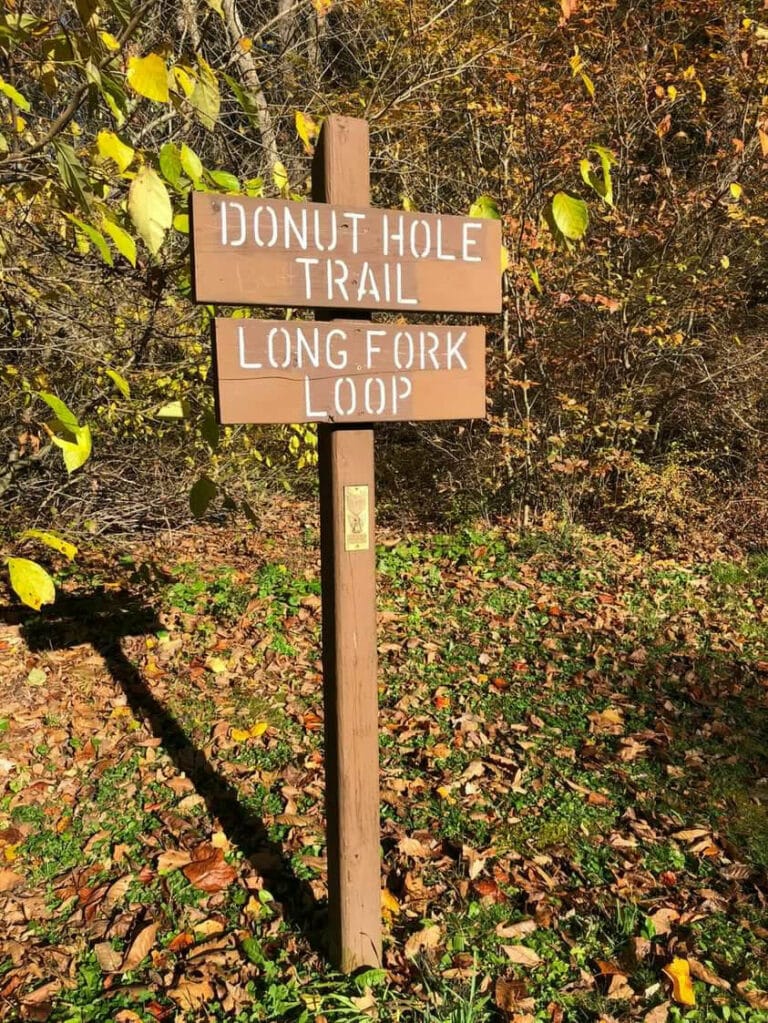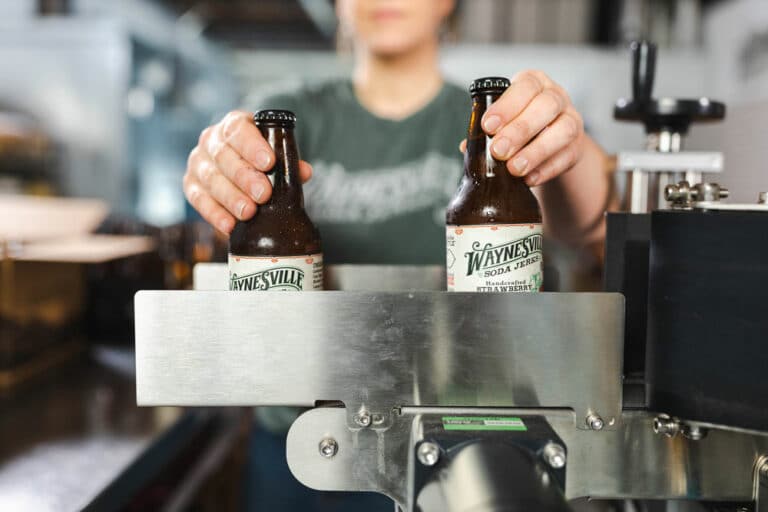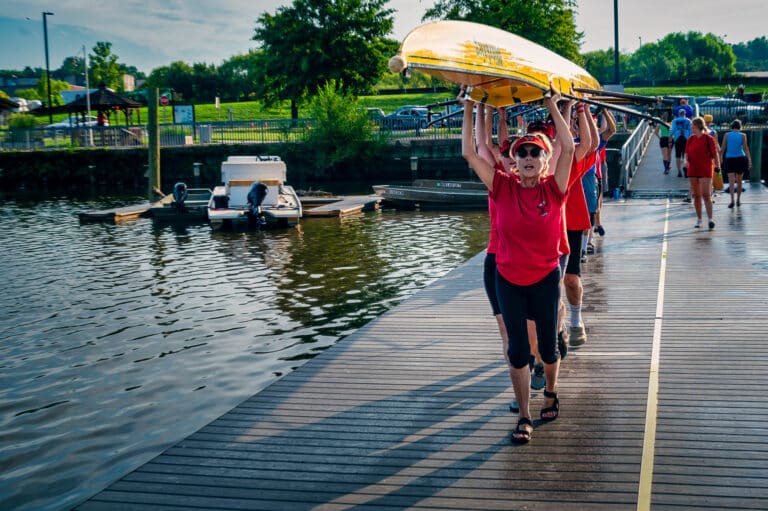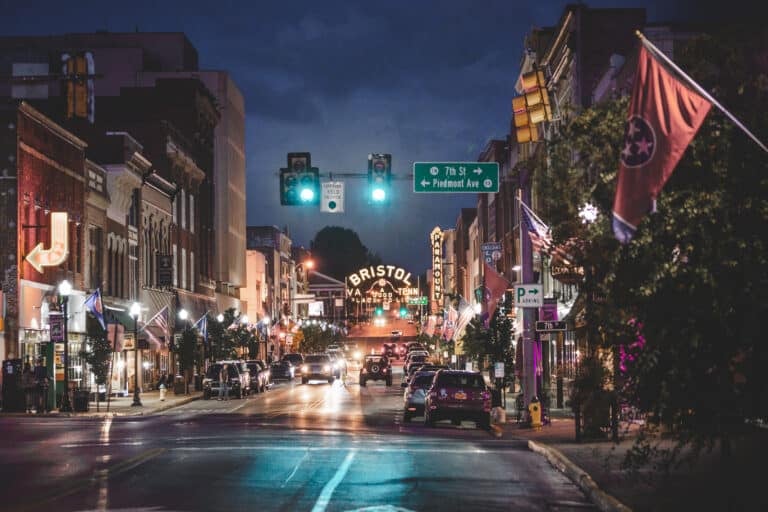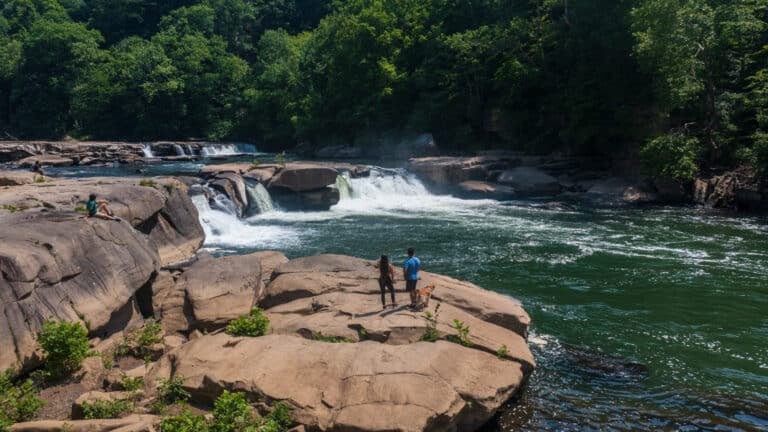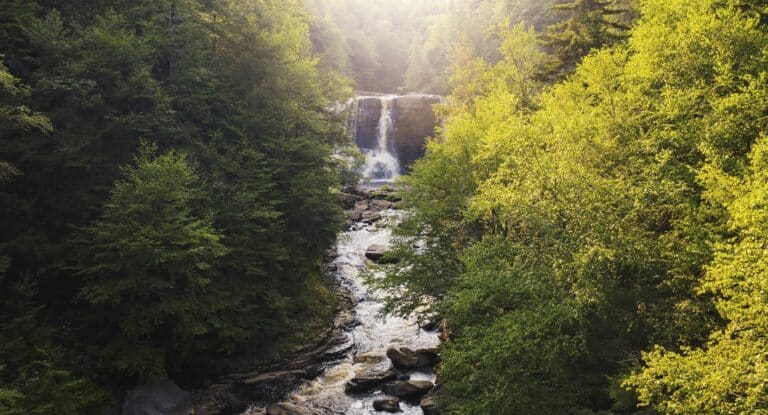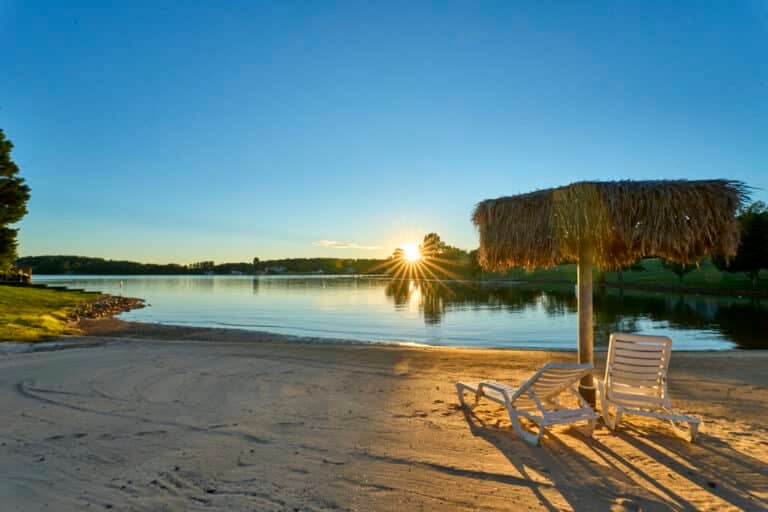Editor’s Note: A paddler’s recent Facebook post of a bikini-clad woman next to a waterfall led to a vigorous discussion on social media among the whitewater paddling community. This essay responds in part to that discussion.
One subject that is very present for me right now is sexism and objectification of women in outdoor sports. Yep, it’s real, and I care about this because I’m a husband, son, brother, uncle, educator, outdoor enthusiast, and a male. It’s time for men to stop ignoring these issues and engage with women in a healthy way. That includes in-person interactions, posting or commenting on social media, or talking among friends when the ladies aren’t around.
If you don’t believe the urgency of this conversation, then I challenge you to go and spend some time in a school and talk with young people. Young women are being bombarded with media images and cultural messages that dictate how they should act and define what is considered beautiful, and boys are being taught that this messaging is okay.
Gentlemen, it’s time to engage and build a culture within which “beautiful” is a term that can mean something different to each individual, and can be freely expressed. Many of you men out there are exceptional leaders and capable of extraordinary feats in your chosen discipline. This is a time to pause and notice what you are communicating to people, especially those who are younger, about what is cool and what is beautiful.
I challenge you to work to post and talk about the things that really draw you to your sport. Tell your story of why you do what you do—and challenge those around you to do the same. The world needs real right now instead of sexed up imagery and “likes.” Furthermore, we need to drop the idea that taking a stand means we are “soft.” There is no “soft.” There is only standing up for what you believe in and value.
Let’s talk about ideas on how to move this forward. First, assume less and ask more. It’s not valid to assume that a woman wants her picture displayed either in social media or elsewhere in a sexualized way. Furthermore, it’s vital that women have a say in what is sexualized and what is not. The current system is not set up to allow a female to choose to be a model free and clear, so let’s stop using the excuse that if she poses for oversexualized photos that means that she is stoked about it. The truth is that we don’t know her and don’t know the circumstances surrounding the imagery. Even more importantly, we need to stop assuming that because a woman is posing in a sexual way that she is inviting us to disrespect her or her body.
Talk to the women in your life about how it makes them feel when they see oversexualized images of women. If you know a woman who poses for such images, ask her why she does it and how she feels when she receives comments that disrespect her. If you do find someone attractive, talk about them like they’re a person and not about what you’d do to them.
If I or anyone posts something or says I find a certain body type attractive and you don’t happen to agree, back off. It’s my idea of attractive, not yours. We’ve all been told for way too long by the media and cultural norms about what and who we should be attracted to. Let’s start to talk about attributes we truly find attractive and support some independent thought in this area.
This discussion will be uncomfortable, and it’s gonna get real. Gentlemen, we’re going to be challenged to change the way we think, speak and act. That’s okay. It needs to happen if we want to encourage and empower more women in the outdoors.
Right now it’s time for us to do some listening. Men have had control of the narrative forever. It’s time to pause and really listen to the wonderful women of the outdoors.
—Andrew Holcombe is a whitewater paddler and teacher in Asheville, N.C.
Listen Up!
We asked some of the top women in whitewater kayaking for their take on gender inequality within the sport. Join the conversation online at BlueRidgeOutdoors.com or on Twitter @GoOutAndPlay
Make sure you are supporting companies that empower women and don’t degrade them. Connect yourself with a company or brand that doesn’t use women in bikinis in their ads to create marketing schemes. Whitewater kayaks sell just fine without having to make an advert or post a photo of a scantily clad woman. Women who whitewater kayak don’t get into it because it is sexy. We get into it because we love the outdoors and want to see nature in a completely different way.
—Adriene Levknecht, Greenville, S.C.
Sometimes I think when men are trying to be helpful and are always “taking a girl down” the river or always telling her to “just follow me,” they may not realize that this can detrimental to her progress and confidence as a woman in kayaking. I personally remember a time when I felt like I wasn’t good enough to do certain things without a man along with me. While this made me safer and more confident in the moment, ultimately it was holding me back from realizing my true potential. It took me a while to recognize that I was capable of running the river because of my own skills, not someone else’s.
—Laura Farrell, Bryson City, N.C.
I’ve received a handful of derogatory comments over the years, but I’ve received far more and far worse derogatory comments outside the paddling community than within. The paddling community as a whole maintains decorum and respect amongst the sexes. When the expectation falls short, the issue is reflective of societal norms and specific to an individual, and isn’t reflective of the paddling community as a whole. I also let the individual know a line was crossed.
—Katie Dean, Swannanoa, N.C.
I have always felt 100% welcome and equal within the sport from a young girl just learning the basics to right now at the top of the sport. There are obviously a few exceptions, but true kayakers don’t mind who you are or where you are from. They welcome, support, and look after everyone, and they treat everyone with respect. If you are good enough to be out there or sometimes just keen enough to learn, then you’re in.
—Claire O’Hara, Sydney, Australia
Largely, paddling is a very positive environment, but the way in which women are treated within the community does vary a lot—even just within the UK. I work with a lot of paddlers of both genders as a coach. There’s definitely still a lot of ladies who feel belittled or simply unable to be a useful part of the team on the river because any leadership or rescue is taken over by male paddlers who presume they just need their help. I’ve watched complete strangers barge in and take over perfectly able, confident female paddlers’ rescues in a way I don’t see happen with male rescuers of same or even lesser ability. However, we need to be very careful not to create an issue in places that there isn’t. So much of our experiences as human beings are about our perception. The presumptions and stereotypes we hold lead us to frame situations in a particular way because that is how we expect it to be.
—Lowri Davies, North Whales, UK
During my time traveling and competing in freestyle and extreme racing full time between 1999 and 2004, I felt very encouraged by men in the freestyle scene and less so in the class V paddling scene (although I did have a few awesome allies). I was told that I should never slow the guys down and that if I decided to not run a rapid then I needed to be at the bottom of the rapid ready to go by the time they were at the bottom having run the rapid. I understand that class V is serious stuff and that it’s important to be efficient and keep moving. Having said that, it occurred for me as added pressure that was never specifically said to the guys —only to me.
—Anna Levesque, Asheville, N.C.
After moving to the Northeast, I was befriended by two brothers with a very solid female influence in their mother. They taught me a lot and largely shielded me from unwanted attention or judgment. Thankfully the same trend continued when I moved to the Southeast and solidly anchored myself with my now husband, Toby and his friends (both male and female). The trend here is that I was able to find a good crew, which spared me from exposing myself to situations where I might come across judgment. That said, just this year, a stranger in California told me to put in on the class III section when I asked him where the trailhead was from the parking lot of the class V section. This stuff happens all the time—but it has taken me a while to really realize it.
—Erin Savage, Mills River, N.C.
When I first started filming back in the days, I got some recognition I probably did not deserve at the time. It made Norway’s most respected kayaker back then pissed off, and he was soon quoted in one of the biggest international kayaking magazines, naming me with full name, as the one kayaker he could think of with the most amount of luck and the least amount of skills. Would he have done that if I was a guy? No, because he very clearly stated at various occasions that I only got attention because I was a female with a pretty face.
I once sat in the put-in eddy of Bear Creek in Alabama with a friend. A friend of his, who I had never met, paddled over, looked me up and down, and commented to my friend, ‘Who is going to babysit this girl down the river?’ Then he simply turned around and paddled off without even saying hi to me. I remember I blushed and wanted to get out, but my friend just smiled and told me we would go in the back of the group – plus he knew he did not have to babysit me. At the take-out I got an apology from the guy and we ended up becoming good friends that season. He simply thought because I was a woman I could not handle class 5, he told me.
—Mariann Sæther, Voss, Norway
